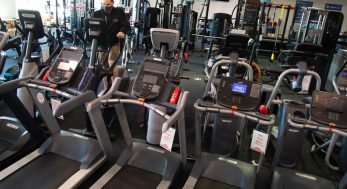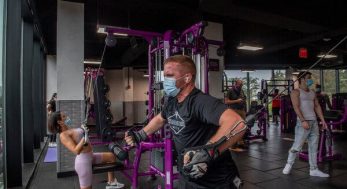Young athletes can’t hit the weight room or practice with their teams while schools are closed and seasons are on hiatus, but there are things they can do at home to help maintain their fitness levels.
“It’s tough because they can’t simulate game speed and game situations, and they don’t have the same equipment at home that they do at school,” he said. “So at home, they’re trying to maintain what they have, just trying not to lose it. They won’t make much progression at home. You just can’t because the environment isn’t the same. But they can maintain.”
Beitzel said their bodies are now going through a “de-loading period,” which means they’re not putting extra stress on the body that they normally would be during practices and games.
And while this downtime can allow nagging injuries to heal, Beitzel cautions that too much rest may be detrimental.
“The downside is they won’t be in game shape and they won’t have the cardio fitness level that they normally would,” he said. “You can get into cardiovascular shape quickly, but you have to acclimate your body to the stress [of the game].
“The ability for the body to adapt to that load that they’re going to put it through will take some time – depending on the sport and how the coaches prep them. You don’t want to overload, but bring the load back on safely.”
There are things athletes can do to stay in shape at home, including bodyweight exercises.
Beitzel said that dumbbells, bands, pushups, situps, planks, squats and lunges can help. He suggests doing about 30 to 40 minutes of work, three to four days a week.
He said that strength training is important to get the body prepared for activity, to reduce injury and to perform better. The athletes won’t be working at the level they were before the shutdown, but they should stay active, he said, even though it won’t match what they usually do during the season.
“It’s going to be difficult- high school football players would now be doing off-season lifting, getting ready for the camps in June, and now those could be delayed,” he said. “They’d be going in and working with coaches on strength and mobility. [The shutdown] will set them back and put them behind.”
Beitzel reminds athletes that they will get back to their sport, and that they should be able to recover any losses in strength and fitness ability, once social distancing restrictions are lifted.
“They just have to ride it out. Everyone will be in the same boat,” he explained.
“I believe that everyone is differently motivated about how much they work out at home, but all athletes will be affected [by the shutdown] to some extent.”


